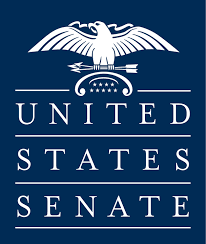General
Battle for the Senate: 2022 Preview
We’ve just been through one big election. But it’s only 2 years till the next one.
We’re only two years away from the next Senate elections. Granted, we’re not completely done with the 2020 Senate elections given the Georgia runoffs. But just 24 months from now, control of the Senate will again be at stake. On average, the President’s party loses two Senate seats in the off-year elections. That’s not a …
Continue reading “Battle for the Senate: 2022 Preview”
CONTINUE READINGSome of the Things Federal Agencies Can Do to Address Climate Change
Current federal law provides many ways to reduce greenhouse gas emissions, even without a friendly senate
As the likelihood grows that the United States will have a new president who will preside over a divided government, and various policy think tanks line up to offer suggestions for effective action on various important issues, it seems like the right time to shine a light once again on a series of reports issued …
Continue reading “Some of the Things Federal Agencies Can Do to Address Climate Change”
CONTINUE READINGPresident Biden & Climate Change: What’s Achievable?
Divided federal government might still allow possibility for meaningful action
With a victory in the presidential election, Joe Biden now faces a U.S. Senate that still hangs in the balance. But even with a Democratic runoff sweep in Georgia next month, it will be very divided. So what will be possible for a President Biden and his administration to achieve on climate change? Agency action, …
Continue reading “President Biden & Climate Change: What’s Achievable?”
CONTINUE READINGThe Changing Landscape of Climate Policy
Even under Trump, the U.S. was slowly lurching in the right direction. Biden needs to give the process a good strong push.
Barring a Democratic sweep in the Georgia runoffs, Biden will be facing a Republican Senate. But he also has a big advantage: The world has changed in some important ways that favor climate action. The importance of these positive changes may have been obscured by some negative developments. Since Barack Obama left office, climate change …
Continue reading “The Changing Landscape of Climate Policy”
CONTINUE READINGClimate Candidates Notch Victories in Major City Council Races Across Western U.S.
Voters choose new candidates with strong climate platforms in Los Angeles, Phoenix, San Diego, and other large cities across the West
While ballot counting continues across the country, city council races are now being called, with new climate champions set to take office in large Western U.S. cities that held elections this week. Many of the victors are taking on their first elected positions. Candidates with inspiring and ambitious climate platforms notched victories in six large …
CONTINUE READINGThe members of the U.S. Supreme Court cannot credibly decide 2020 elections cases
To do so could impair faith in our democratic institutions
When it comes to deciding cases that could affect the outcome of the 2020 election, all members of the U.S. Supreme Court have a serious conflict of interest – not because they may be political partisans, but because their jobs are at stake. It is well-understood that if the Democrats take the White House and …
Continue reading “The members of the U.S. Supreme Court cannot credibly decide 2020 elections cases”
CONTINUE READINGDriving Sustainable Energy Storage Technology
Maximizing the Environmental Utility of Battery Storage: Building a Life Cycle Assessment Framework
Battery energy storage is recognized as a key element of making our energy infrastructure more sustainable and resilient. Battery storage, however, encompasses many technologies–how should sustainability-minded agencies, utilities and storage developers choose among these options? UCLA’s Emmett Institute and the UCLA Institute of the Environment and Sustainability is hosting an interactive workshop on that question …
Continue reading “Driving Sustainable Energy Storage Technology”
CONTINUE READINGRemoving Climate Liability Plaintiffs from State Court Could Create Logjam in Federal Courts
The U.S. Supreme Court is set to decide a nuanced issue of procedural law that could create a loophole which would dramatically expand the reach of federal appellate jurisdiction and prevent climate plaintiffs from suing oil companies in state court.
As recent extreme heat waves, hurricanes, and wildfires across the country have elevated public concern about the widespread and harmful effects of climate change, the U.S. Supreme Court granted certiorari this month in a climate liability case called BP P.L.C. v. Mayor and City Council of Baltimore. In short, the City of Baltimore sued a …
CONTINUE READINGBarrett on Standing & Judicial Deference
Her mentor was Scalia, but her style is more like Souter.
With the help of my research assistant, I’ve collected cases by Judge Barrett dealing with standing issues and deference to administrative agencies. Both topics are very relevant to the environment.al crisis. You really can’t draw firm conclusions about her views on these doctrines, but you can draw conclusions about her style. She sticks close to …
Continue reading “Barrett on Standing & Judicial Deference”
CONTINUE READINGSteering Towards Zero Emissions
Is California’s Ban of Gas-Powered Cars on a Collision Course with the Federal Government?
This post was originally published on the American Constitution Society’s Expert Forum on September 30, 2020. On September 23, California Governor Gavin Newsom announced an Executive Order that would, among other things, ban the sale of new internal combustion engine vehicles in California after 2035. The announcement sparked a flurry of reactions: Some environmental groups praised the order, while others said it …
Continue reading “Steering Towards Zero Emissions”
CONTINUE READING











